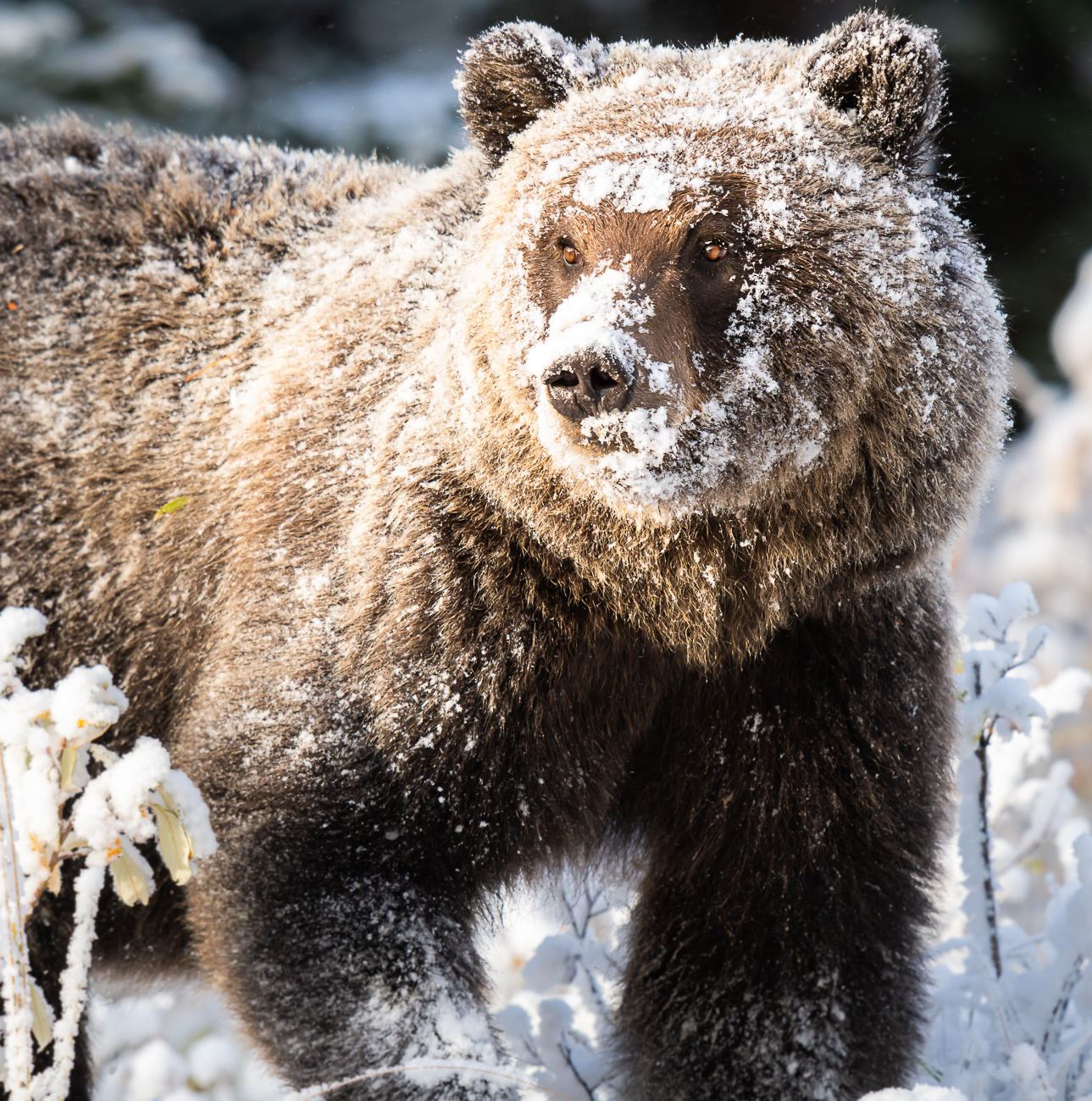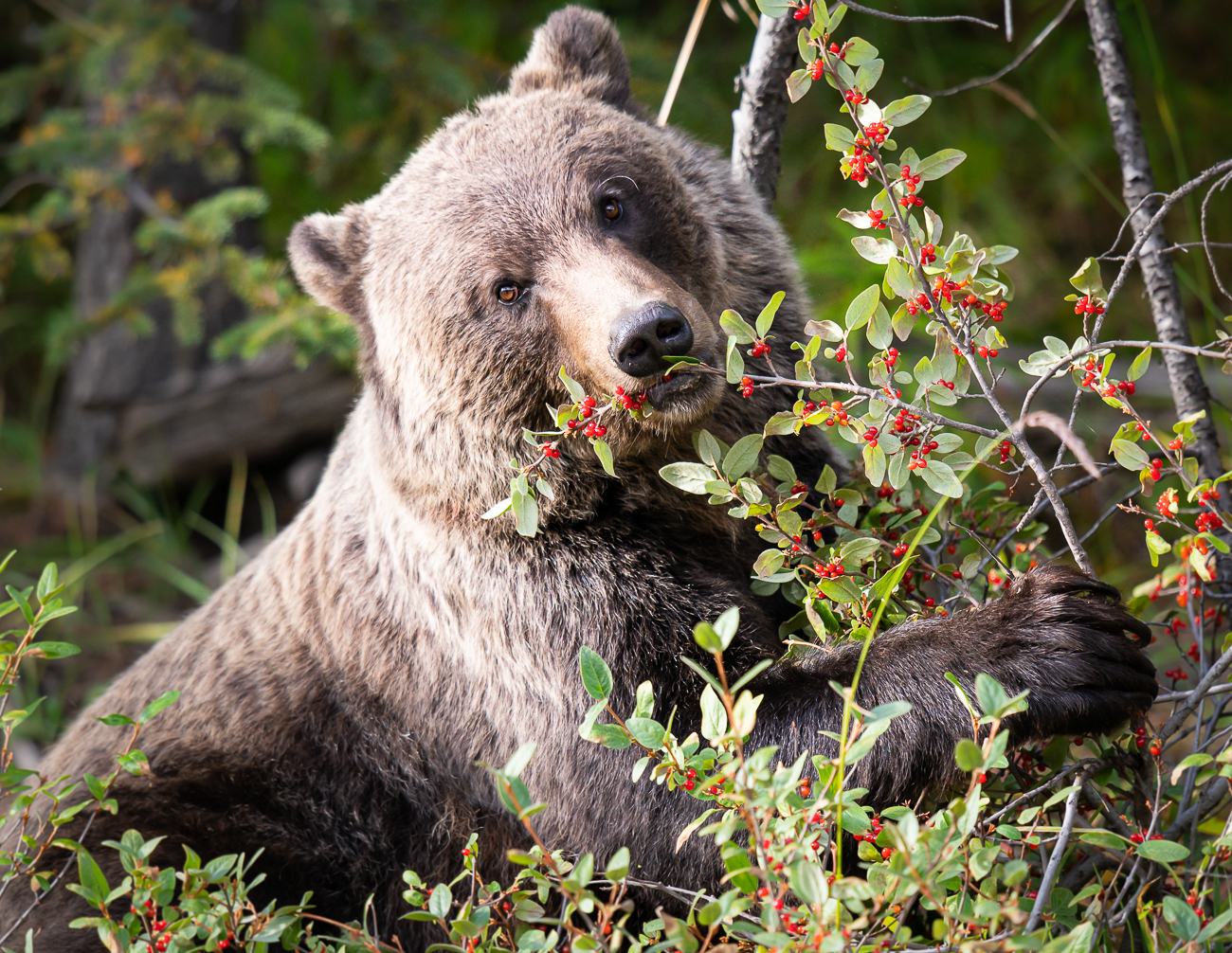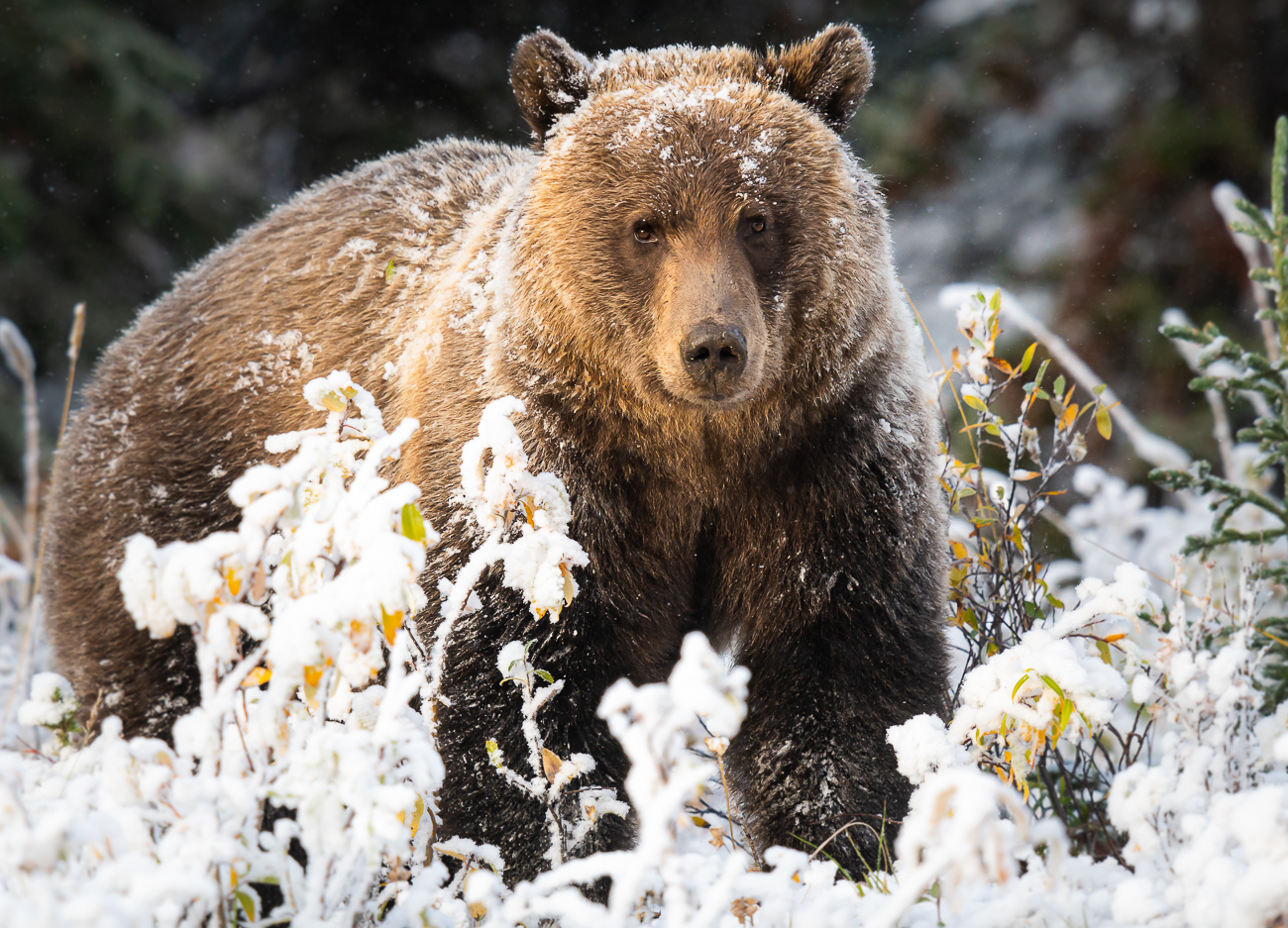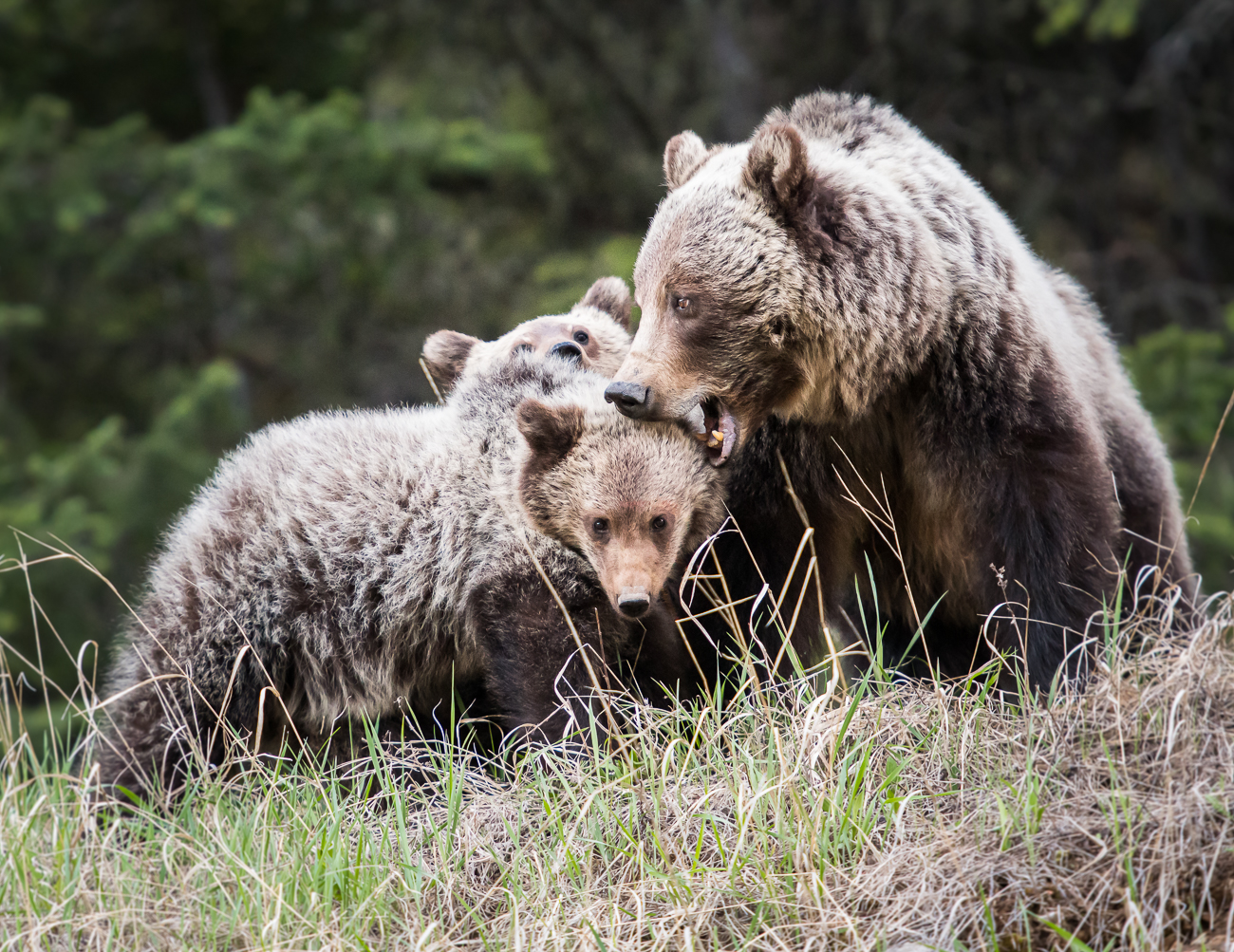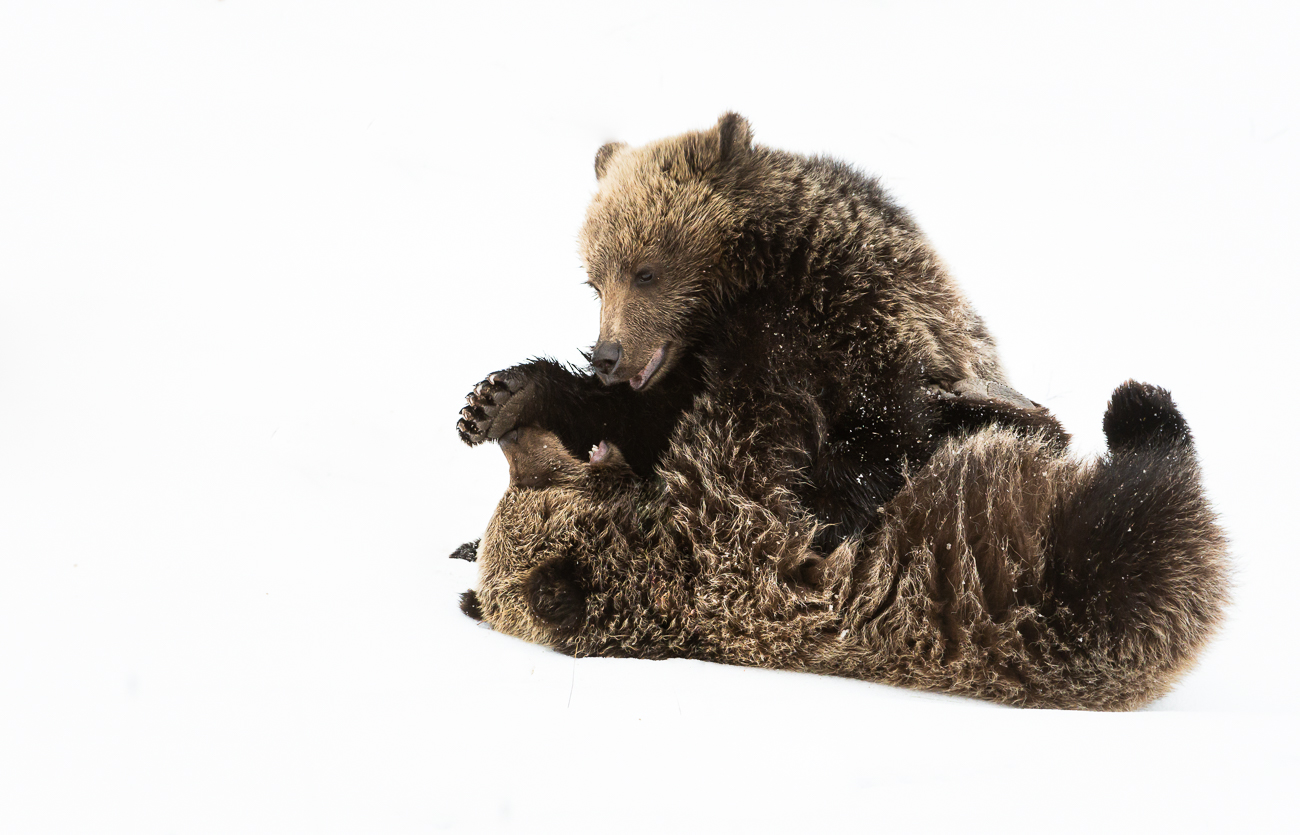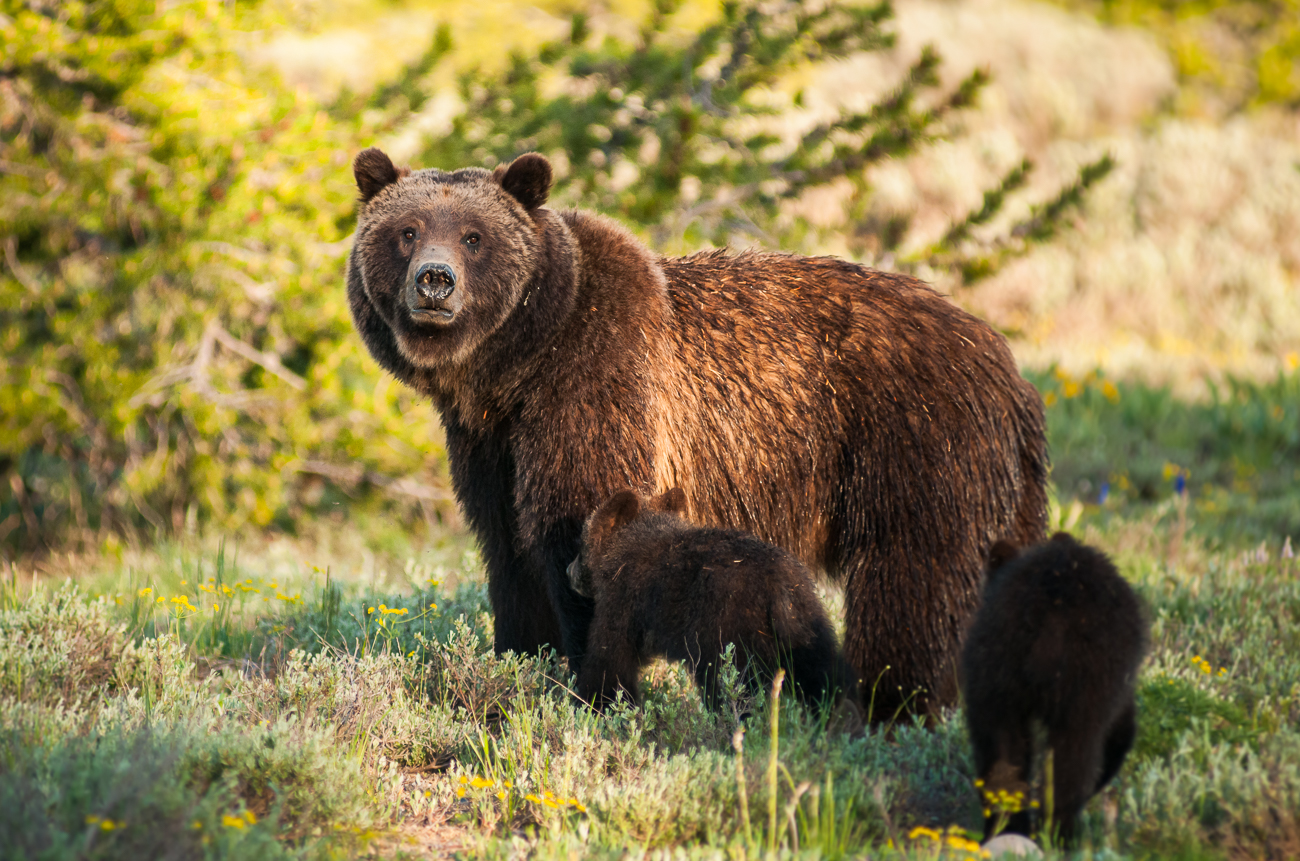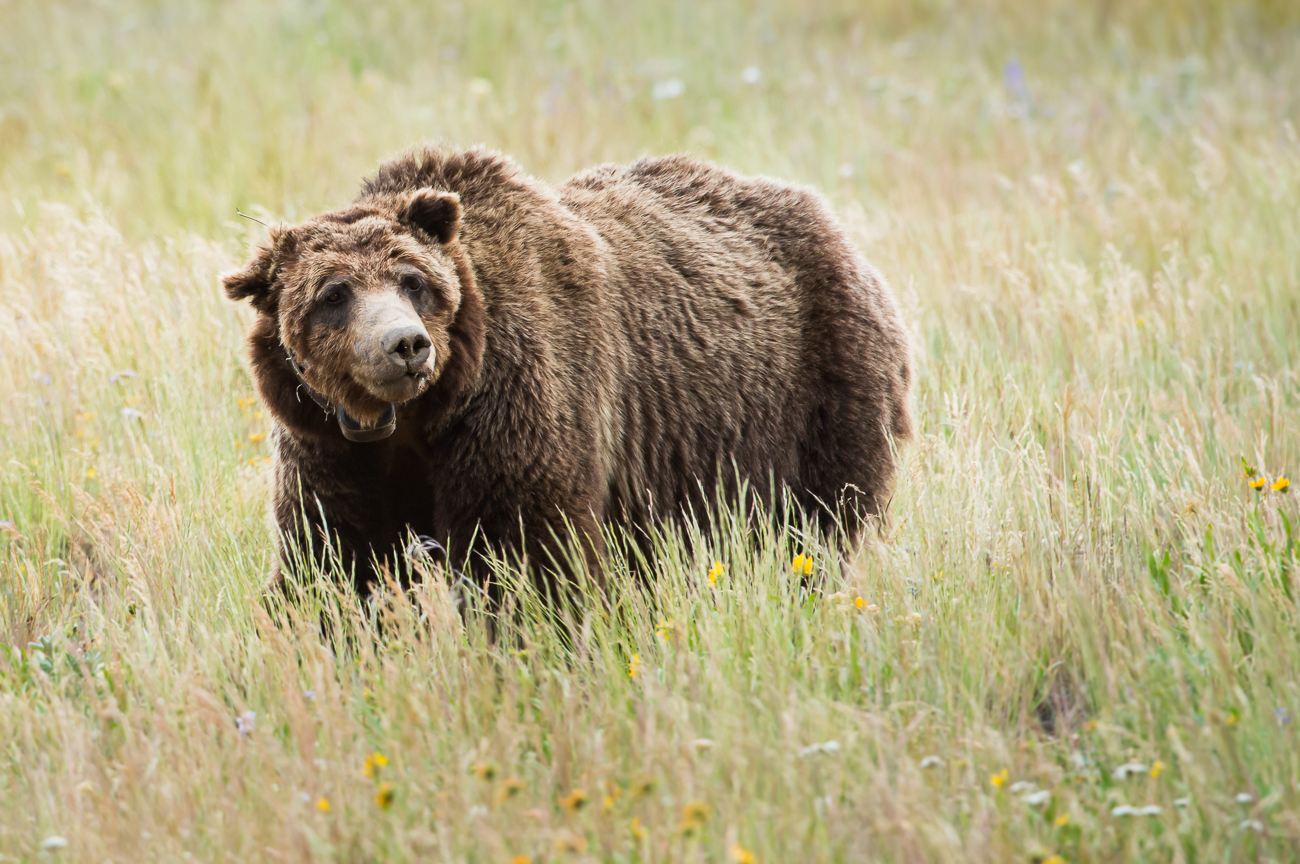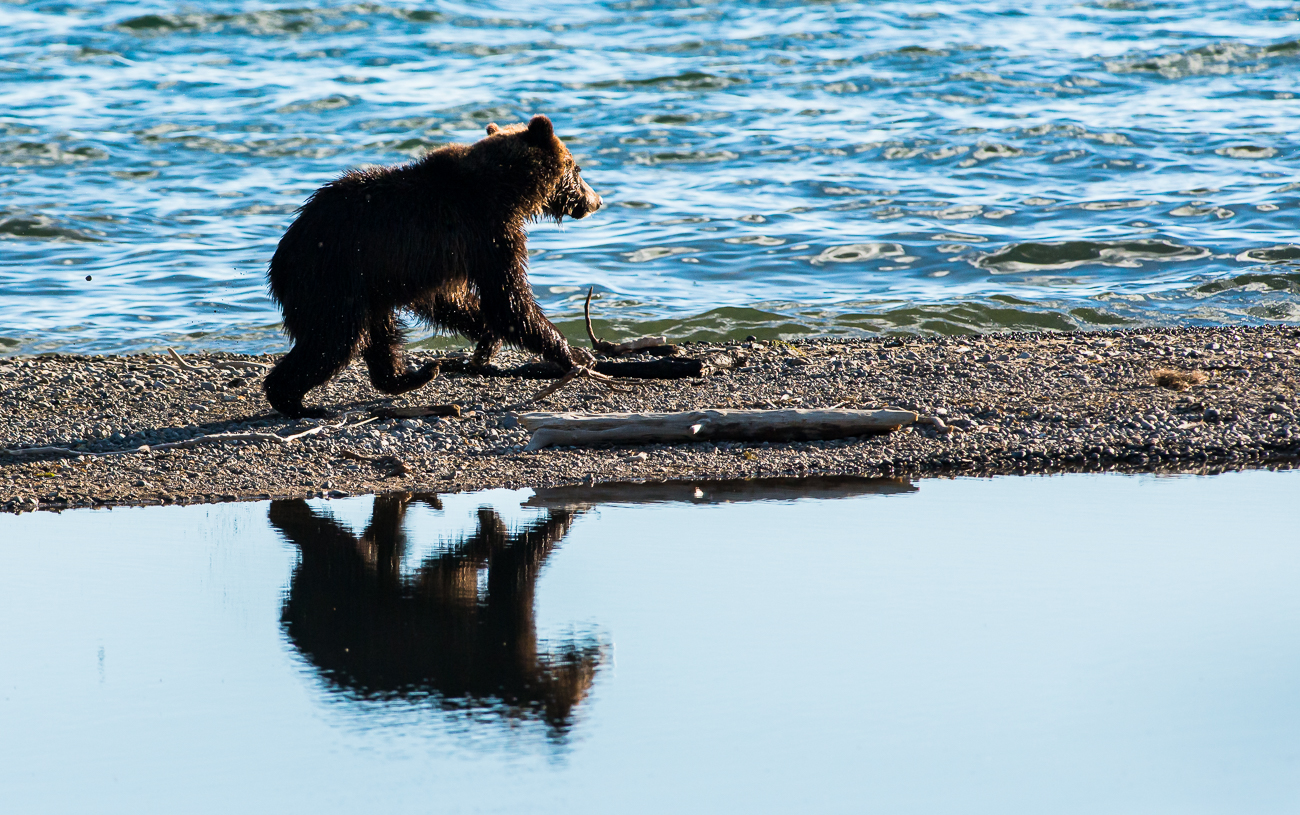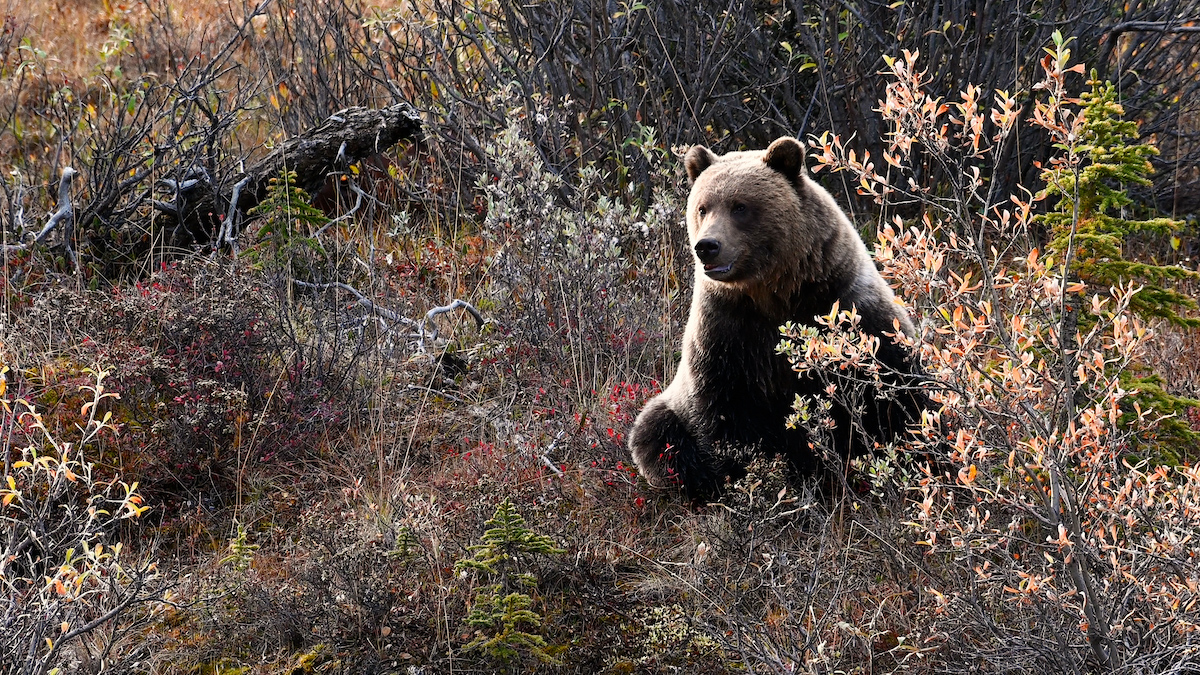The System of Things
Chapter One
Balancing the needs of people and nature is vague. We get that. And it’s intentional.
Why?
We didn’t have to pick nature – two bears – as our metaphor for the challenges we face or the lessons that must be taught. There are always other metaphors. There are always more pressing issues, more socially relevant issues. But for each of those issues – rightly or wrongly – we can’t always agree on right or wrong. Or even where to start.
But nature? We know that before we start debating the value of a park – and before we get into how best to, yes, balance people and nature – if we stop and really look at this? We can all agree that this is beautiful.
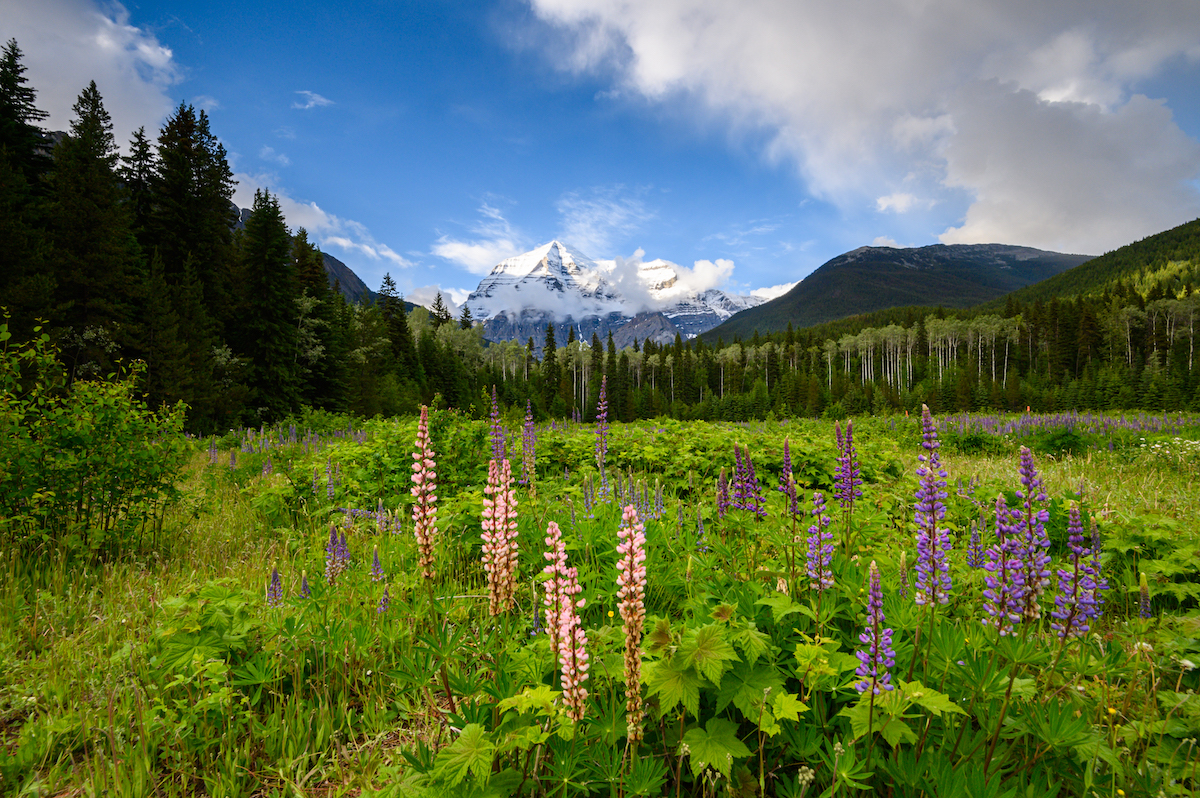
By really stopping to appreciate this scene together, we can see that our natural inheritance is our common humanity. It is what makes us equal. It is what unites us.
Sure, it’s impossible for everyone to agree on how best to strengthen our economy or advance social justice or steward our natural environment. But by finding a common starting point – by using nature to move away from what we disagree with and toward what we can agree on – we want to help you be more open to listening and learning from those you agree with and those you don’t. Even more importantly, we want to help you reimagine what’s actually possible when we work together.
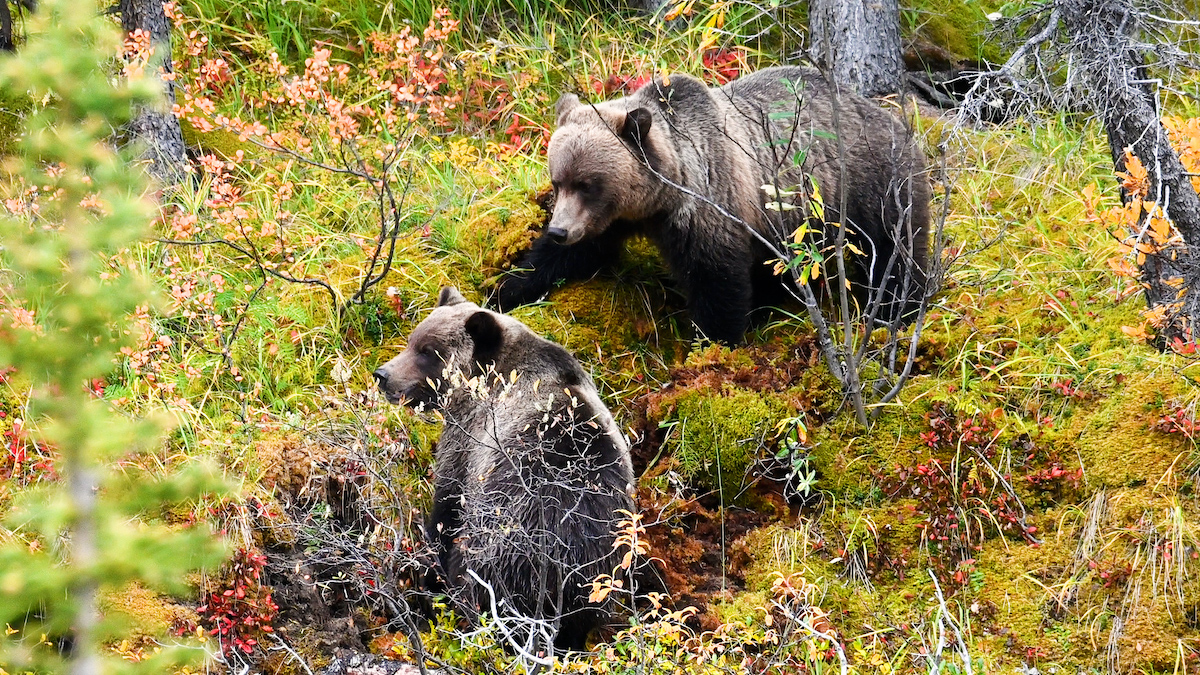
Just like our two bears.
That’s why this is Nature Labs and that’s why our challenge to you throughout this course will be to find a better balance between the needs of people and nature.
So, what’s the best way to balance people and nature? No clue! And that’s the point.
Even if nature is the metaphor – the lens – you can take this in any direction you want.
Maybe you think the best way of balancing people and nature is to ensure every Canadian has an affordable home, because it’s only with this type of security that our population can turn their attention to safeguarding biodiversity. That’s fair.
Maybe you believe that Indigenous and non-Indigenous members of your community need to gather and really listen to each other’s hopes and fears before trust can be built to work together to balance people and nature. Good idea.
Maybe you think the loss of a species in your region will cause a cascade-effect that will not only harm the ecosystem you call home, but will destroy the economic and cultural cornerstones that make this place a good home. For you, maybe you want to change development or recreational practices or protect habitat. That’s a worthy idea too.
Maybe you think we need to help an industry under siege stay viable to support jobs that, byway of taxpayer dollars, will fund that better balance between people and nature. Or maybe you think we just need to invest in your new innovation because, if it succeeds, that’s how we can balance people and nature. Or maybe you think we just need newer nature stories, as that will inspire the population to think of better ways to balance people and nature.
You see where we’re going with this? All of these ideas are right. Your idea is right. That’s how we want you to balance the needs of people and nature, by putting your own unique stamp on the challenge.
But wait you say, does nature even matter? Well, that too is a good question.

“Nature is our world.” – Dr. Larissa Vingilis-Jaremko | Science Advocate
“Nature – our biodiversity – is the world in its most complete state.” – Ken Wu | Ecosystem Advocate
“We’re a wholly-owned subsidiary of planet Earth.” – Sandra Odendahl | Engineer & Financial Executive
“We all are part of nature.” – Sam Sullivan | Former Mayor of Vancouver
“My first thought isn’t how and why nature matters to me, but why we matter to nature.” – Myia Antone | Indigenous Advocate
“Nature is food, it’s health, it’s economics, it’s research, it’s relationships, it’s culture.” – Marie-Eve Marchand | Social Innovator
“Nature is something that is part of the commons.” – Niki Wilson | Science Journalist
“Nature is not something separate from our society, is not something apart from ourselves.” – Dr. Will Greaves | Political Science Professor
“Everything is interrelated.” – Dr. Leroy Little Bear | Educator & Global Rights Leader
“Nature is life. It enriches our lives.” – Dr. Victoria Lukasik | Biologist
“Nature absolutely matters no matter what we do in life.” – Jimmy Pattison | Business Leader
Liberal or conservative, urban or rural, young or old, we can all agree nature matters. But here’s the thing:
“In our world today, we don’t actually pay as much attention to nature as we should.” Mohnish Kamat | Financial Executive
“When we talk about nature, in a lot of cases, it’s almost theoretical. It’s something that’s out there, but it’s not something you’re in.”– Dawna Friesen | TV News Anchor
“While we think about society and nature as two distinct entities, they’re really not. And everything we do has a huge impact on our natural world.” – Andria Dawson | Mathematical Ecologist
“The magic of nature is only there if people ensure that it’s there.” – Harvey Locke | Biodiversity Advocate
“It’s a constant tooth and nail fight all the time, with everyone always, to care about nature. It’s always a battle. It’s really hard and it’s really frustrating that it’s hard.” – Quinn Scott | Fisherman
“As a youth, what I find with my peers is that the opportunities for (understanding why nature matters) are essentially non existent.” – Zeel Patel | Entrepreneurial Innovator
“When I start to explain the concept of a watershed to people, I’ve had people say: ‘Do I live in a watershed?’ Yeah, everywhere is a watershed.” – Sandra Nelson | Biologist
“We have to actually remind ourselves of how embedded we are in natural systems.” – Dr. Will Greaves | Political Science Professor
“It’s a hard thing to understand how everything affects everything so much.” – Sarah Ramirez | Raptor Biologist
“But if you spend time in nature, and if you have a respect and reverence for it, then you know that there are lessons that you gain from it. We aren’t better than anything.” – Dev Aujla | Author & Social Innovator
“The fact that we have devices in front of our faces for 70% of our lives now is a very clear indicator that we are losing our connection to the earth.” – Kelly King | Indigenous Knowledge Advocate
“It’s a very tough challenge to articulate things that sometimes you can see and hear, and many times you can’t.” – Kyle Empringham | Environmental Communicator
“If there ain’t no picture of (how natural systems work and are threatened), maybe we’re not as alive to it.” – Shachi Kurl | Pollster
“You know, I think we have to see how the pieces fit because one of the reactions that we see very often is: ‘So what? None of this matters.’ But it does matter.” – Dr. Kerry Bowman | Ethicist
It’s true. Even though we know we should care about nature, most of us don’t really know why we need to care.
“Firstly, I guess it’s the beauty.” – Hal Kvisle | Business Leader
“Humans are interesting animals. We have our practical needs and we also have our creative, love of beauty, sides.”– Harvey Locke | Biodiversity Advocate
“Nature to me, is just awe inspiring. It’s like my church.” – Jim Bottomley | Futurist
There’s that, but more importantly there’s this:
“The environment has a huge impact on our future.” – Amanda Gierling | Accountant & Financial Analyst
“Nature does matter. I think increasingly it matters because more and more of the issues that we deal with have a nature or natural component.” – Mike Farnworth | BC Cabinet Minister
“People need to eat and have clothing and shelter. And all of those products come from the management of ecosystems.” – Takota Coen | Farmer
“Without the protection of nature, there is no economy. You can’t separate the two.” – Joe Urie | Indigenous Tourism Advocate
“I think (nature provides) $26 trillion dollars of economic benefit.” – Rt. Hon. Kim Campbell | Former Prime Minister
“I think business needs to do everything they can to protect biodiversity.” – Hal Kvisle | Business Leader
And then there’s this:
“Valuing nature is super important to our public health.” – Loraina Stephen | Former Nurse & BC Park Operator
“(Think about) the natural flora in our gut. The microbiome – the micro level of nature in our own bodies – impacts how we thrive in a very significant way. We need to show humility towards nature and how we integrate and interact with nature.” – Dr. Aleem Bharwani | Cumming School of Medicine
“Some theorists have said that nature is the foundation of art. But nature is also the foundation of physics. In fact, nature is the foundation of everything, including you and me, because we’re just carbon that evolved in nature. That’s all we are.” – Harvey Locke | Biodiversity Advocate
“We wouldn’t be here if biodiversity and the web of life didn’t exist. This is what has supported us from an evolutionary point of view. This is why we evolved. We exist because of that web of life and we need to respect it.” – Dr. Kerry Bowman | Ethicist
Indeed, nature is life. It’s why globally recognized biodiversity expert Harvey Locke argues how we often see our world – the famed United Nations’ Sustainable Development Goals as an example – are wrong.
“It was perceived as enlightened environmental policy: You have the economy, you have society and you have the environment – you look for that little sweet spot in the middle (between the three rings of the Development Goals). That is completely wrong.
“The Earth is the context for all life. That’s where the atmosphere is. That’s where the weather we have comes from. That’s where the water we drink and the food we eat comes from. Inside that is the human dimension – our species – that shares the world with many other species. And then inside human society is our social values and our economy. Those are nested inside what it is to be human, which is nested inside (the natural functioning) world.”
Harvey adds, “One of the things that is so interesting is if you look at traditional indigenous worldviews, they automatically perceive humans as one species among many, sharing the world with the rest of life. Even Western people who look like me saw it like that before the Roman Empire. And Hindu culture still sees it like that.
“We need to agree that that’s the truth, which is what modern biological science tells us. And then we need to act on that truth, which is that we have to share the world with the rest of life or we’re all in trouble – that life and our lives as well.”
This is why nature actually matters. Because whether we believe it or not – see it or not – we all live in a system far bigger, far more complex and far more interconnected than we can ever imagine.
It’s what’s known as biological diversity and as Dr. David Cooper, the United Nations’ Acting Executive Secretary of the Convention on Biological Diversity, tells us: “Simply put, it’s the variety of life on Earth.”
Every single living organism on the planet – human, animal, plant, fungi, bacteria and more – makes up that diversity of life. Which is neat, but biodiversity is about more than the totality of life on Earth, adds David.
“It matters to us at all sorts of levels. At the most fundamental level, it’s essential for the functioning of the Earth’s systems.”
That’s right: Biodiversity is what allows for life on Earth.
“So many of the biochemical cycles that sustain life on Earth in the broadest sense depend on biodiversity and the ecosystems biodiversity makes up”, David explains.
So, biodiversity doesn’t just matter; it’s arguably the only thing that matters.
Biodiversity is what produces oxygen to breathe. It creates drinkable water. It produces the food we eat. Biodiversity reduces our pollution, helps removes toxins from the water, supports the pollination of plants, manages our pests, produces our medicines, decomposes our waste, regulates our climate and allows us to overcome natural disasters.
And that might surprise you. After all, when we talk about the environment, we almost always talk about the climate, but rarely do we hear about biodiversity.
Why? We asked the UN’s Dr. David Cooper.
“We hear a lot about the impacts of climate change. In many of these cases, (what we’re actually looking at is) impacts on biodiversity, we’re talking about the increased risk of extinction. And often when we look at impacts of extreme events that are associated with climate change, we forget those impacts are exacerbated because of what we’ve been doing to our ecosystems and to biodiversity. The two issues are totally inseparable. Stemming the loss of biodiversity and making full use of our ecosystems is essential in the fight against climate change.”
It’s a classic bad news/good news scenario. Every problem we face makes other challenges more serious, but, equally, as we solve one challenge, we help address other problems in the process. And safeguarding our biodiversity is our best tool in the fight against climate change; it’s our best tool for tackling so many issues.
Why?
Biologist Laura Kennedy explains, “The more biodiversity we have, the more stable ecosystems become. Ecosystem stability is important. It gives us services like water filtration and nutrient recycling.”
Which doesn’t sound exciting or important. But as biologist Dr. Victoria Lukasik explains, “We’re all part of this web of life on Earth. The more connections there are, the more stable the whole system is. As we start to lose little pieces, then now instead of a web it becomes a line or a chain. And then suddenly that system is really vulnerable to any change that might happen. Any one population or one species can make a big impact on the whole system.”
Exactly, Victoria. After all, interconnected webs are way harder to break than a chain held together by a singular link.
That means while we can learn to live and adapt with a changing climate, we simply can’t adapt or overcome a significant loss of biological diversity. No life can. Which makes this comment from the UN’s Dr. David Cooper less than ideal:
“The bad news is that in most parts of the world, biodiversity is declining and it’s declining at all levels.”
That is a problem.
David continues, “Forests, grasslands, coral reefs and so on: Those are declining in area. If we look at the abundance of species – how many fish we have in the sea, how much wildlife we have on land – that is declining as well. Populations of insects, be it on nature reserves or on farms, are declining.”
Why? “Because humans are taking up more space on earth,” argues David.
Unlike the omni-present issue of climate or pollution in the sky or toxins in our water, we don’t get our impact on biodiversity, as Nature Conservancy’s Dawn Carr tells us.
“It’s not sexy, the phrase ‘biodiversity loss’. A lot of people are like, ‘what is biodiversity? I don’t even know what biodiversity conservation is. But I know what climate change is.’ There are certain things that have more relevance that stick.
“But over time, I think biodiversity is going to become more and more important. And people will become more and more aware of (the importance of) protecting biodiversity because it’s going to start impacting us.”
Indeed, because biodiversity touches every facet of life, everything we do across every system needs to consider biodiversity. That’s not opinion, says biodiversity expert Harvey Locke; that’s scientific fact.
“Recent scientific assessment by the Intergovernmental Science-Policy Platform on Biodiversity and Ecosystem Services says that we are in a crisis and we need transformative change.”
Sometimes we work to safeguard biodiversity when large, well-known animals – like grizzly bears – decline in population. But we rarely pay attention to the lesser lights of our natural systems. In some cases, we don’t even know what lesser lights exist, let alone why they matter.
In fact, the species we don’t see might, in some ways, matter more than charismatic megafauna – and almost certainly are more susceptible to change. And here’s the thing: everything serves a purpose; everything has its own unique niche. These naturally intended roles are what interconnect every living organism into the global web of life. But since we don’t understand – or even know about – every species, we don’t see – or comprehend – the importance of these links.
“Canada has this aura internationally of being this green, pristine place. But we have big issues in our own backyard.” – Brian Keating | Conservation Expert
“One of the ironies of Canada is that the country is so huge and has such vast expanses of wilderness and natural beauty that we don’t need to be as attentive to it. And that myth is one that I think we need to really be rid of. We need to really recognize the extent to which Canada and Canadians have an obligation to safeguard biodiversity. Not just for ourselves, although definitely that as well. But Canada has such a vital wealth of natural ecology that is of global significance – the boreal forest, to name one example – we really have an obligation to safeguard it on behalf of people all over the world. This is a global responsibility that is borne by Canada.” – Dr. Will Greaves | Political Science Professor
“We are losing habitats. We’re losing species. We’re losing populations. Losing species is tragic, because they’ll never come back, but we’re losing populations of animals in one place after the other.” – Brian Keating | Conservation Expert
It’s for this reason that political science professor Dr. Will Greaves argues, “Not changing is not an option. The question, of course, is what the nature of the change is going to be, and managing that as democratically and in as mutually beneficial a way as possible.”
That is the question. The how is what often divides. After all, our ideas about where and when we should act are about as diverse as biodiversity itself.
“I think everybody wants a healthy environment. There’s just different opinions as to how we weight each of our goals.” – Sam Sullivan | Former Mayor of Vancouver
“It all stems back to how we feed ourselves, clothe ourselves and shelter ourselves. It’s the basis for civilization. And the way that we’re doing that is undermining our ability to continue to live on this planet. And so we need to figure out a way to do it, but we also need to figure out how to do that in a way that fits within the current economy, otherwise no one’s going to do it. And that challenge is one of the reasons why we’re in this mess we’re in.” – Takota Coen | Farmer
“When you make it easy, people will get on board. When there is a giant ‘No, no, no, no! You’re doing things wrong! You’re a bad person!’, people tend to close off.” – Shachi Kurl | Pollster
“In order to get anything done politically, it has to be a balance.” – Sam Sullivan | Former Mayor of Vancouver
“Turning off the lights at nine o’clock on a Saturday night is symbolically interesting, but isn’t meaningful enough to make people think there’s going to be the kind of change they want to see. The whole system needs to shift in some way that causes the transformative change that the world needs to see.” – Harvey Locke | Biodiversity Advocate
“Over what timeframes (do we change)? How? Those are the million dollar questions.” – Sean Mullin | Economist & Adviser to the Prime Minister
“I am an advocate of maintaining big protected areas.” – Dr. Shelley Alexander | Biologist
“Basically, (protected areas are seen by rural citizens) as outsiders putting nature ahead of human beings.” – Art Carson | Forester & Rural Historian
“What we might call red tape, actually, is a set of rules, or a set of guidelines for what everyone has to meet so we’re all equal players in decision making.” – Kerrie Blaise | Environmental Lawyer
“I have no objection to us meeting the highest environmental standards. What a lot of us are objecting to these days is the grinding regulatory process (red tape) that we have to go through before we can even begin a project. (Rather than red tape), I think technology is probably the greatest enabler that we have to doing a better job of protecting the environment.” – Hal Kvisle | Business Leader
“We don’t have time to argue. We truly don’t.” – Neil Fletcher | Biologist & Hunting Advocate
“We take the fundamental moral equation that we live by in Western society and just throw it out the window with animals.”– Dr. Kerry Bowman | Ethicist
When you take people’s ability to go hunt on the landscape out of the picture, it actually removes them from caring about the landscape.” – Neil Fletcher | Biologist & Hunting Advocate
“Seeing animals in their natural habitat? There’s nothing that compares to this. So, the impact that this has on people’s appreciation of wildlife and nature – their appreciation of the value of protecting natural habitats – I think requires authentic experiences.” – Louis-René Sénéchal | Parks Canada
“We’re seeing the harassing of wildlife again. I do think it’s possible to love national parks to death.” – Niki Wilson | Science Journalist
“We can’t save every species, so why bother trying? Why don’t we be realistic and focus on which ones we can save, or which ones we’re willing to save, and just make sure we do that?” – Dr. Victoria Lukasik | Biologist
“That’s essentially playing God isn’t it?” – Brian Keating | Conservation Expert
“For every complex problem, there is a simple, wrong solution.”– Janet Austin | Former BC Lieutenant Governor
“People work in oil and gas and there’s people who work in the forestry industry and there’s people who work in the mining industry and there’s people who work in farming and there’s people building big cities and building sprawling subdivisions. And all these things in aggregate are causing a problem in the world. We are all doing that together. We have this challenge. Not, ‘you’re the problem and I’m the solution’. We’re in this together.” – Harvey Locke | Biodiversity Advocate
See? We can rarely agree on how best to do anything. And though the time for debating how will come, what really matters is that we all understand why biodiversity matters and that even in these divided times?
“I think nature is an issue that unites us.” – Dawna Friesen | TV News Anchor
Think about it this way, explains urban planner Victor Ngo.
“All environmental issues impact communities – impact small, large, diverse populations – on a variety of everyday struggles. People need to get food; people need to have a livelihood to support their families; people need a proper education to be a fully realized person.”
That makes us equal; it unites us in a shared challenge. And yet food, work, education and so many facets of daily life impact and are impacted by our environment. That can seem overwhelming, but only if we look at our lives and our problems at the individual level, argues Victor.
“I’m not just one young student in Vancouver; I’m a citizen of the planet.”
What does that mean? Well, remember our two bears? They shouldn’t have been able to influence this system in a major way, especially at their age. But they are. Just as other species influence their ability to live and thrive.
And maybe if these two ceased to exist it wouldn’t matter. Or maybe if grizzly bears disappeared from this landscape it would only matter a little. And maybe the consequence of no grizzlies here would only mean this ecosystem would struggle to function, not all ecosystems.
But what grizzly, what species, what ecosystem is one too many to lose? We asked ethicist Dr. Kerry Bowman, who works with citizens, medical professionals and governments around the world to tackle complex questions just like this one.
“I see biodiversity as a massive brick wall and people are slowly removing a single brick here and a single brick there. And they’re saying: ‘there is no effect whatsoever. This wall is as stable as was before I slid these bricks out’. How many bricks can you slide out before you get a cascade effect?”
The fear of a cascading loss of biodiversity – and the consequential collapse of natural systems – scares many scientists and can make the issue seem hopeless. And, yet, in a way, in should underscore something quite empowering and hopeful: That everything and everyone interconnects and matters to the whole.
Two undersized bears, an unknown insect or one single person has the power to change a system, locally or even globally. We can impact it negatively, sure. But we can also sustain and enhance our systems – our web of life – for the better.
“The conservation of biodiversity needs to be everybody’s business.” – Louis-René Sénéchal | Parks Canada
Yes, that includes scientists and policy makers, sure. But it also needs to be the business of researchers and storytellers and artists and chefs and bankers and doctors and engineers and industry leaders and community leaders.
Indeed, finding better solutions to the challenges we face must also be your business.
“Live like it matters to you.” – Barbara Cartwright | Welfare Advocate
“You matter. Your opinion matters. Your voice matters.” – Stephanie Leonard | Caribou Patrol
“No one is going to be able to come up with a perfect solution in the beginning. I think what we hope is that you’re going to push things further, a little bit down the road, until they become the status quo and we can really make some big changes. And sometimes history looks like that. (It’s small change followed by small change) and then all of a sudden there’s a fundamental sea change. We’ve seen this on a range of stuff around human rights around the world. But there’s a different type of urgency with the environment.” – Salimah Ebrahim | Journalist & Entrepreneur
“Absolutely everything matters. Does that bear get to live or does it not? And, you know, you’re like: ‘Why do I care? It’s Mount Robson. What’s the impact on me?’ I don’t know. But what I do know is that everything is interconnected, and it’s interconnected in so many different ways. And if you understand that there’s an interplay between things, it may not be a straight line to you, but indirectly it all comes back to us. And, so, I think that we have to pay attention to every single element that we can comprehend and understand and say: ‘What’s the way that I can do hopefully no harm, or as little harm as possible? Because I understand what the interconnection is between that bear and myself. And when you go to make a decision realizing that every single decision you make matters – because it impacts something else, which impacts something else – the interconnectedness of all of this really affects the way that we live our lives.” – Stu McNish | Journalist
And if we can leave our mark on Mount Robson or our community or Canada or the world – and we can – why not try for better? Why not work to find a new way of looking at an old, if growing, problem. Why not find a new path forward that can change our system for the better, for all?
“Humans live in a very narrow gap of ideal conditions that allow for us to exist. If you start plucking away at those ideal conditions, well, things are going to change. If things keep going the way they’re going, are we going to be around?” – Dr. Leroy Little Bear | Educator & Global Rights Leader
“As nature goes, so goes life on Earth.” – Sandra Odendahl | Engineer & Financial Executive
“This is all we’ve got.” – Dr. Kerry Bowman | Ethicist
“Most of us think in very short terms and we begin to say, well, it’s not going to be about me. But it’s certainly going to be about your kids. That’s why it’s important to look at it from that bigger, wider scope; from that bigger, wider perspective.” – Dr. Leroy Little Bear | Educator & Rights Advocate
“Don’t take anything for granted. Do not take a healthy, sustainable economy or a healthy, sustainable environment or a healthy, sustainable world for granted.” – Rick Antonson | Author & Tourism Expert
